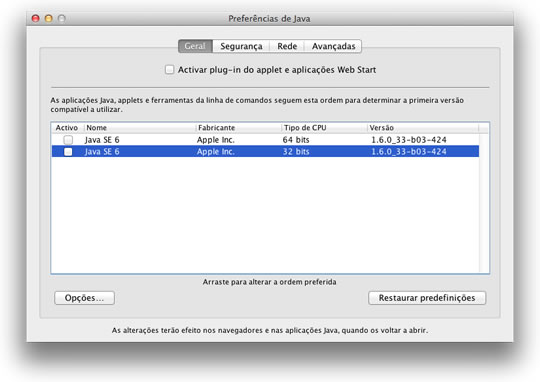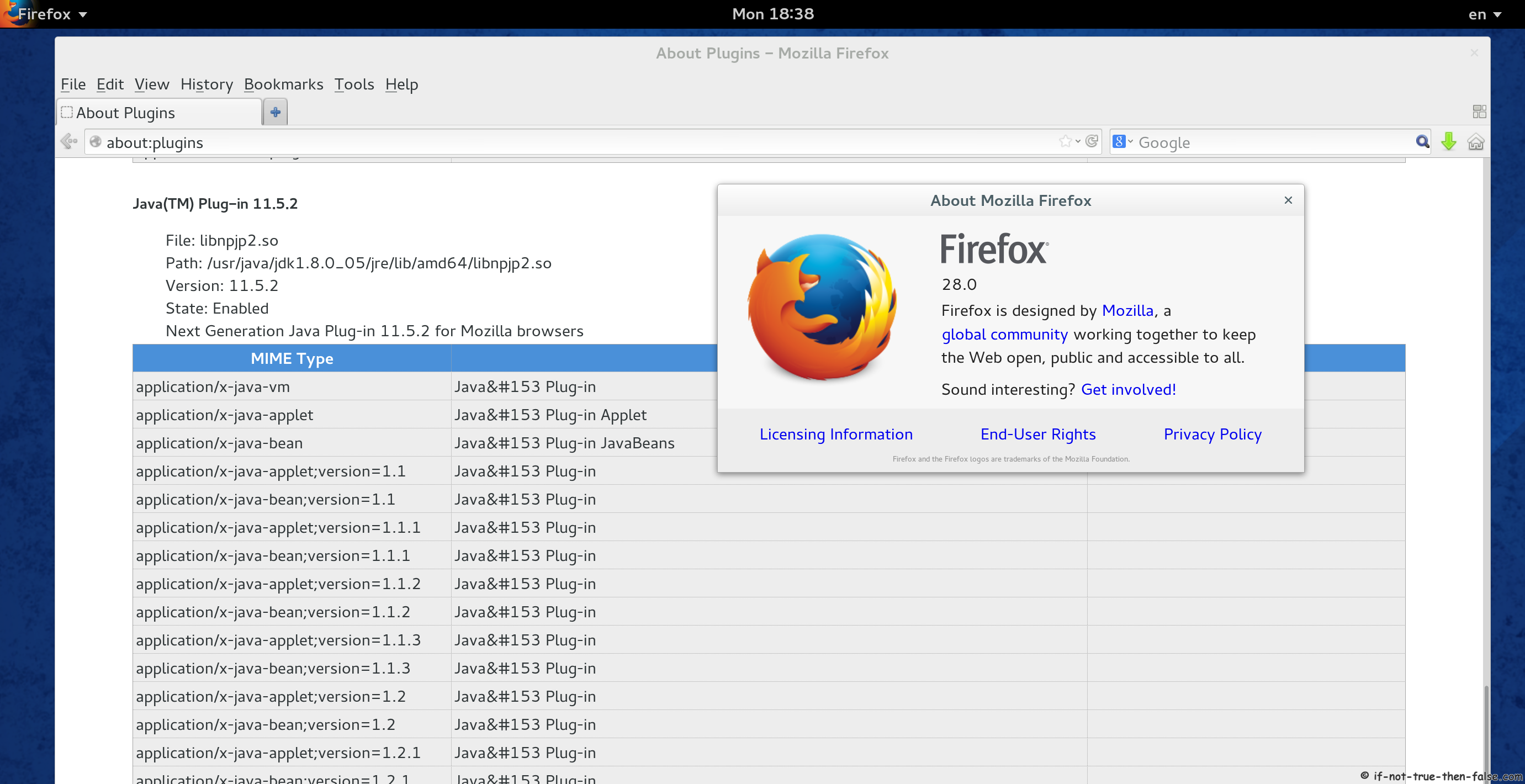Java Jre 1.6 For Mac
$ export JAVAHOME=`/usr/libexec/javahome -v 1.6` Some applications use /usr/bin/java to call Java. After installing Java for macOS 2012-006, /usr/bin/java will find the newest JDK installed, and will use that for all of the Java-related command-line tools in /usr/bin. Jre 1 6 free download - Apple Mac OS Update 8.6, Apple Mac OS Update 7.6.1, Apple Mac OS Update 9.0.4, and many more programs. Java Plug-in Mac Download Page. Mac Download Page. Downloads for other platforms. Starting with JDK 7 update 6 Oracle provides a JRE version for Mac OS X users which includes a Java Plugin. Many Adobe applications depend on the Oracle Java Runtime Environment (JRE) for some features to work. Apple recently changed the way it includes Java in Mac OS, and with Lion, Java is no longer preinstalled. It is now an optional install that you must select. Most casual Mac users only need to get the JRE (Java Runtime Environment) and not the full JDK (Java Development Kit). Downloading directly from Oracles website insures the latest version will be installed, and it also has the advantage of allowing for remote installation and upgrades on Macs through Remote Login or SSH. Many Adobe applications depend on the Oracle Java Runtime Environment (JRE) for some features to work. Apple recently changed the way it includes Java in Mac OS, and with Lion, Java is no longer preinstalled. It is now an optional install that you must select.
- Java Runtime Environment 1.6 0 For Mac
- Java Jre 1.6 For Mac 1.8
- Java Jdk 1.6 Free Download For Mac Os X
| Developer(s) | Oracle Corporation |
|---|---|
| Stable release | |
| Operating system | Windows NT, macOS (x64), Linux, Solaris |
| Platform | IA-32, x64, ARM, SPARC |
| Type | Software development kit |
| License | Sun License (most of it also under GPL) |
| Website | www.oracle.com/technetwork/java/ |
The Java Development Kit (JDK) is an implementation of either one of the Java Platform, Standard Edition, Java Platform, Enterprise Edition, or Java Platform, Micro Edition platforms[1] released by Oracle Corporation in the form of a binary product aimed at Java developers on Solaris, Linux, macOS or Windows. The JDK includes a private JVM and a few other resources to finish the development of a Java application.[2] Since the introduction of the Java platform, it has been by far the most widely used Software Development Kit (SDK).[citation needed]

The JDK is available for 64-bit x64 macOS (and that version also works with Rosetta 2), while an early access build (developer preview) from Microsoft is also available to support recent Apple M1 Macs.[3][4][5]
JDK contents[edit]
The JDK has as its primary components a collection of programming tools, including:
- appletviewer – this tool can be used to run and debug Java applets without a web browser
- apt – the annotation-processing tool[6]
- extcheck – a utility that detects JAR file conflicts
- idlj – the IDL-to-Java compiler. This utility generates Java bindings from a given Java IDL file.
- jabswitch – the Java Access Bridge. Exposes assistive technologies on Microsoft Windows systems.
- java – the loader for Java applications. This tool is an interpreter and can interpret the class files generated by the javac compiler. Now a single launcher is used for both development and deployment. The old deployment launcher, jre, no longer comes with Sun JDK, and instead it has been replaced by this new java loader.
- javac – the Java compiler, which converts source code into Java bytecode
- javadoc – the documentation generator, which automatically generates documentation from source code comments
- jar – the archiver, which packages related class libraries into a single JAR file. This tool also helps manage JAR files.
- javafxpackager – tool to package and sign JavaFX applications
- jarsigner – the jar signing and verification tool
- javah – the C header and stub generator, used to write native methods
- javap – the class file disassembler
- javaws – the Java Web Start launcher for JNLP applications
- JConsole – Java Monitoring and Management Console
- jdb – the debugger
- jhat – Java Heap Analysis Tool (experimental)
- jinfo – This utility gets configuration information from a running Java process or crash dump. (experimental)
- jmap Oracle jmap - Memory Map– This utility outputs the memory map for Java and can print shared object memory maps or heap memory details of a given process or core dump. (experimental)
- jmc – Java Mission Control
- jpackage – a tool for generating self-contained application bundles. (experimental)
- jps – Java Virtual Machine Process Status Tool lists the instrumented HotSpot Java Virtual Machines (JVMs) on the target system. (experimental)
- jrunscript – Java command-line scriptshell.
- jshell - The new jshell introduced in java 9.
- jstack – utility that prints Java stack traces of Java threads (experimental)
- jstat – Java Virtual Machine statistics monitoring tool (experimental)
- jstatd – jstat daemon (experimental)
- keytool – tool for manipulating the keystore
- pack200 – JAR compression tool
- policytool – the policy creation and management tool, which can determine policy for a Java runtime, specifying which permissions are available for code from various sources.
- VisualVM – visual tool integrating several command-line JDK tools and lightweight[clarification needed] performance and memory profiling capabilities
- wsimport – generates portable JAX-WS artifacts for invoking a web service.
- xjc – Part of the Java API for XML Binding (JAXB) API. It accepts an XML schema and generates Java classes.
Experimental tools may not be available in future versions of the JDK.
The JDK also comes with a complete Java Runtime Environment, usually called a private runtime, due to the fact that it is separated from the 'regular' JRE and has extra contents. It consists of a Java Virtual Machine and all of the class libraries present in the production environment, as well as additional libraries only useful to developers, such as the internationalization libraries and the IDL libraries.
Copies of the JDK also include a wide selection of example programs demonstrating the use of almost all portions of the Java API.
Ambiguity between a JDK and an SDK[edit]

The JDK forms an extended subset of a software development kit (SDK). It includes 'tools for developing, debugging, and monitoring Java applications'.[7] Oracle strongly suggests to now use the term JDK to refer to the Java SE Development Kit. The Java SE SDK is available with or without the JDK, by which they specifically mean the Java SE 7 JDK.[8]
Other JDKs[edit]
In addition to the most widely used JDK discussed in this article, there are other JDKs commonly available for a variety of platforms, some of which started from the Sun JDK source and some that did not. All adhere to the basic Java specifications, but often differ in explicitly unspecified areas, such as garbage collection, compilation strategies, and optimization techniques. They include:
In development or in maintenance mode:
- Azul Systems Zing, low latency JDK for Linux;[9]
- Azul Systems / OpenJDK-based Zulu for Linux, Windows, Mac OS X, embedded and the cloud;[10]
- OpenJDK / IcedTea;
- AicasJamaicaVM;
- IBM J9 JDK, for AIX, Linux, Windows, MVS, OS/400, Pocket PC, z/OS;[11]
Not being maintained or discontinued:
- Apache Harmony;
- Apple's Mac OS Runtime for Java JVM/JDK for Classic Mac OS;[12]
- Blackdown Java – Port of Sun's JDK for Linux;[13][14]
- GNU's Classpath and GCJ (The GNU Compiler for Java);
- Oracle Corporation's JRockit JDK, for Windows, Linux, and Solaris;[15]
See also[edit]
References[edit]
Java Runtime Environment 1.6 0 For Mac
- ^'Java SE 7 Features and Enhancements'. Oracle Corporation. Retrieved 1 January 2013.
- ^'OpenJDK homepage'. Oracle Corporation and/or its affiliates. Retrieved 1 January 2013.
- ^'Release 16-ea+10-macOS-aarch64 · microsoft/openjdk-aarch64'. GitHub. Retrieved 26 January 2021.
- ^'Does OpenJDK work on Apple silicon?'. isapplesiliconready.com. Retrieved 26 January 2021.
- ^'Latest release | AdoptOpenJDK'. adoptopenjdk.net. Retrieved 26 January 2021.
- ^'JDK 5.0 Java Annotation Processing Tool (APT)-related APIs & Developer Guides -- from Sun Microsystems'. Retrieved 5 August 2012.
- ^'Java SE Downloads'. Oracle. Retrieved 10 July 2013.
- ^'Java EE 7 SDK distributions require JDK 7''Java Platform, Enterprise Edition 7 SDK - Installation Instructions'. Installing the Software. Oracle. Retrieved 10 July 2013.
- ^'Azul Zing product page'.
- ^'Azul Zulu download page'.
- ^'developerWorks : IBM developer kits : Downloads'. Retrieved 5 August 2012.
- ^'Support at Apple'. Archived from the original on 13 December 2007.
- ^'Java Linux Contact Information'. Archived from the original on 7 August 2007. Retrieved 5 August 2012.
- ^'Java-Linux Latest Information'. Archived from the original on 19 October 1996. Retrieved 5 August 2012.
- ^'JRockit Family Download page'. Retrieved 5 August 2012.
External links[edit]
- GNU Classpath – a Free software JDK alternative[citation needed]

Java Jre 1.6 For Mac 1.8
If you have upgraded Mac OS X 10.10 Yosemite, you may have noticed that the previously installed JRE is not available.Installed JRE error Mac OSX eclipse
As there is no JRE installed, Eclipse would throw the following error,
So to resolve this issue, you need to download JRE dmg (from oracle website) and re-configure JRE with Eclipse.
/System/Library/Java/JavaVirtualMachines/1.6.0.jdk/Contents/HomeConfiguring JRE with Eclipse
Go to Eclipse -> Preferences
Select Java-> Installed JREs -> Add
Now Select Standard VM
Now enter '/System/Library/Java/JavaVirtualMachines/1.6.0.jdk/Contents/Home' in JRE Home text field. If the location is correct you will see all JRE system libraries being listed.
Click Finish and we are done with it! ..
Java Jdk 1.6 Free Download For Mac Os X
- This class should be public (android.support.v7.internal.widget.ActionBarView.HomeView) Lint Error - Android
- Eclipse : The type java.lang.CharSequence cannot be resolved. Indirectly referenced from required .class files - Java
- Your Android SDK is out of date or is missing templates. Please ensure you are using SDK version 22 or later. - Android
- How to repeat tile background image in Android Activity - Android
- How to change Android Button Color using xml attribute and programatically using java - Android
- Maven : java.lang.ClassNotFoundException: Xmx512m - Android
- How to Get or Set SharePoint Document ID _dlc_DocId using PowerShell - SharePoint
- How to find AUTO_INCREMENT fileds value in mysql table - MySQL
- Add Animated Scrolling to Html Page Title Script - JavaScript
- JavaScript : Get url protocol HTTP, HTTPS, FILE or FTP - JavaScript
- Unable to connect to the Internet : Google Chrome - Chrome
- java.io.IOException: Unable to locate resource handler.properties - Java
- Redirect page using jQuery - jQuery
- Android Studio : Build Tools 23.0.0 rc1 is deprecated - Android-Studio
- Eclipse : This version of the rendering library is more recent than your version of ADT plug-in. Please update ADT plug-in - Eclipse